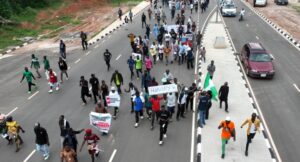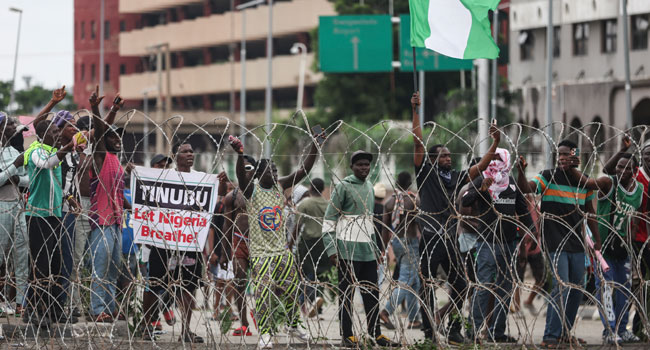During a recent press briefing held in Gusau, the Zamfara State capital, the Coalition of Northern Groups (CNG) urged the Federal Government to revisit and amend what it described as “unfriendly economic policies.”
The group emphasized the need for the government to intensify efforts in the ongoing fight against banditry and other forms of insecurity, particularly in the Northern region of Nigeria, which has been deeply affected by these issues.
Hussaini Hassan, the State Coordinator of CNG in Zamfara, expressed these concerns while addressing the media. He highlighted the growing frustration among the Northern population, which has been exacerbated by the rising cost of living and pervasive insecurity.
According to Hassan, the economic policies introduced by the current administration, including the removal of fuel and electricity subsidies as well as the floating of the Naira, have significantly contributed to the hardship that many Nigerians are currently facing.
CNG called on the Northern State governments to take urgent action in addressing the pressing needs of their local populations. This includes increasing access to quality education, implementing poverty alleviation programs, subsidizing transportation, and encouraging the youth to embrace agriculture as a viable means of livelihood.
The group stressed that these measures are essential not only for improving the living conditions of the people but also for reducing the number of youths who turn to the streets in search of a better life.
 The Coalition also expressed concern over the recent protests in the region, where some participants were seen waving Russian flags and chanting anti-democratic slogans. They called out the protesters for invoking the name of Russian President Vladimir Putin
The Coalition also expressed concern over the recent protests in the region, where some participants were seen waving Russian flags and chanting anti-democratic slogans. They called out the protesters for invoking the name of Russian President Vladimir Putin
Suggesting that the military should intervene in Nigeria’s political affairs. CNG argued that while the frustrations of the protesters are understandable, involving foreign actors in domestic matters poses a significant threat to Nigeria’s sovereignty and should be strongly discouraged.
While the CNG acknowledged the shortcomings of Nigeria’s democratic system, they emphasized that the solution lies in collective efforts from all Nigerians to make democracy work. They urged the public to resist any attempts by foreign entities to interfere in the country’s internal affairs, as such interference could lead to further destabilization and undermine the goals of the protests.
In addition, CNG condemned the recent clashes between security agents and protesters, noting that the situation was further aggravated by the involvement of hoodlums who took advantage of the protests to loot valuables.
The group also criticized the infiltration of foreign elements into Nigeria’s affairs, warning that such actions could derail the objectives of the protests and lead to an escalation of violence and instability in the country.
CNG called on all parties involved—the protesters, community leaders, and security agencies—to demonstrate patriotism and adhere to the rule of law. They stressed that violence and disorder would only serve to deepen divisions within the country and hinder its development.
Instead, the Coalition advocated for peaceful and constructive dialogue as the best way forward, urging Nigerians to come together to address the challenges facing the nation in a manner that promotes unity and progress.
In conclusion, the Coalition of Northern Groups reiterated their call for the government to take swift and decisive action in reviewing its economic policies and addressing the security challenges in the North. They stressed that a failure to do so would only exacerbate the suffering of the people and further threaten the stability of the country.




